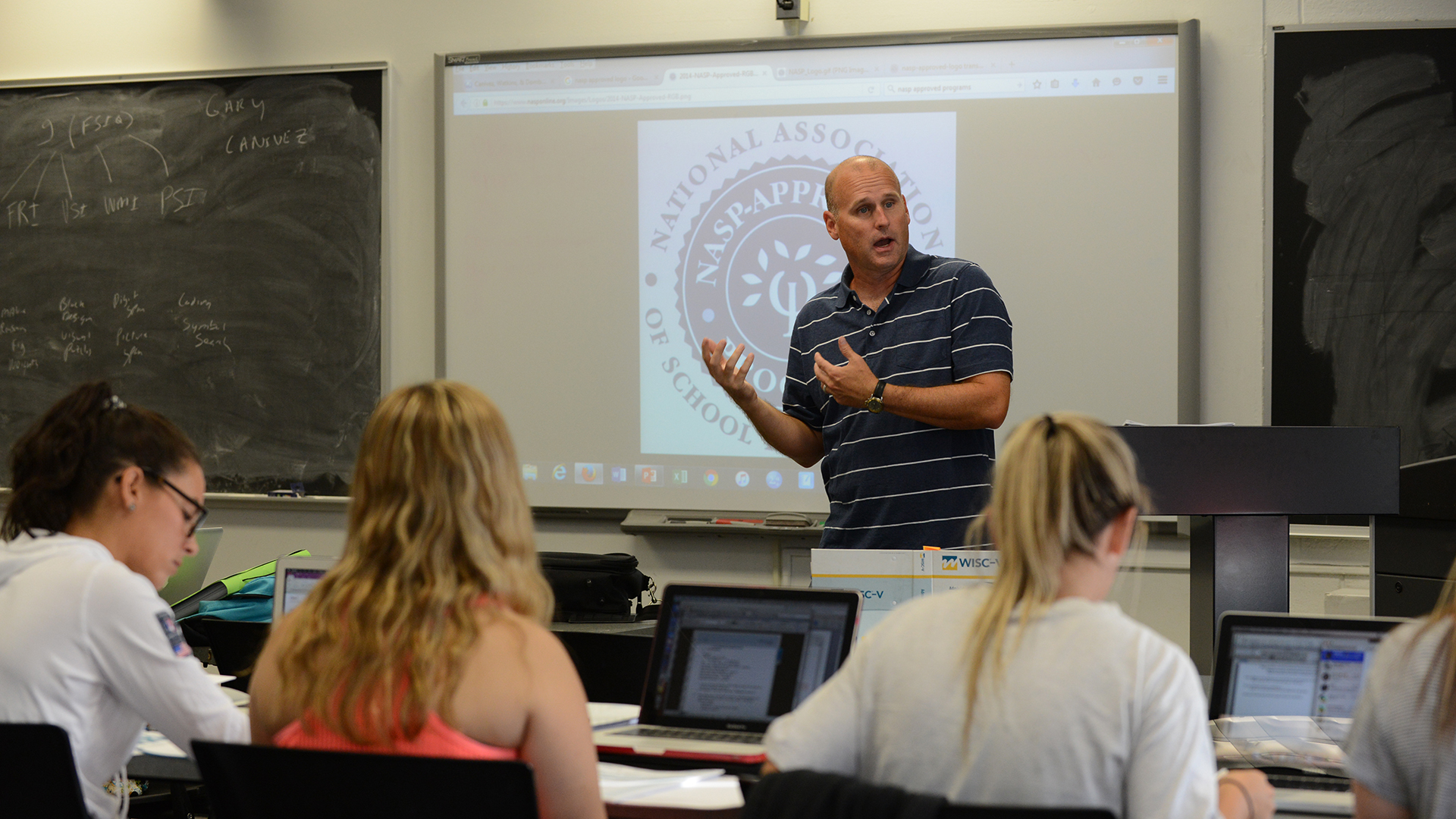Monday, Nov 30, 2020
'Psychoeducational Assessment and Report Writing' is by Dr. Stefan Dombrowski
by Keith Fernbach
Assessment and report writing is the key defining feature of a school psychologist’s role, according to Stefan Dombrowski, the director of the school psychology program at Rider University.
Yet Dombrowski, who teaches courses on this subject at Rider, says that for years he was unable to find an adequate textbook to use in his classes.
“It’s ironic that there was not a specific text for that purpose, even though it’s the most ubiquitous activity that school psychologists undertake and what they’re known for,” he says.
As an experienced instructor, researcher and practitioner who has worked in the school psychology field for more than 20 years, Dombrowski decided to take matters into his own hands and write one himself.
The first edition of his book, Psychoeducational Assessment and Report Writing, was published in 2015. It has been so well received — to date there have been more than 1.6 million chapter downloads — that he recently wrote a second edition, which was released in July.
The book is geared toward graduate students, researchers, professors and professionals in child and school psychology. It offers a how-to guide through the assessment process, which includes collecting data, writing reports and communicating conclusions, for children in grades K-12 who may be facing challenges such as autism, learning disabilities or emotional disturbances. It also covers ethical, legal, cultural and professional considerations that psychologists should be aware of when conducting evaluations.
Not only does the book offer practical advice for those working in the field, but it goes one step further by presenting a series of sample reports, each of which is annotated to increase the reader’s understanding of the rationale behind the decisions that are discussed in the report.
Dombrowski, who has also published extensively on flaws in the interpretation of IQ tests, says that this book looks at assessments more broadly.
“It focuses on how you use all the data that are gathered to come to a conclusion about a child, such as academic achievement, behavior, mental health and cognitive ability,” he says. “There are specific childhood educational and mental health diagnoses that a school psychologist is responsible to evaluate and we look at all of those.”
He says his goal in writing the book was to improve the entire process by which students are evaluated, diagnosed and ultimately treated. “It’s a presentation from A-Z of how to evaluate children, and then how to synthesize the information to put it together in a clearly written report from an evidenced-based perspective.”
By enhancing this process he hopes that children will be better served. “In my practice, I’ve seen many reports that were poorly written or organized, or the appropriate instruments weren’t used, or they weren’t interpreted properly, or where there was psychobabble throughout the report. I’ve also seen too many instances where the recommendations to teachers and parents aren’t connected to anything useful or practical.”
All of this ultimately hurts the children, who by being misdiagnosed can either end up not receiving services they desperately need, or conversely, taking away needed resources from other students.
In the second edition, Dombrowski expands upon his findings from the first, and lays out a brand new framework by which he hopes to improve practice in the field. He breaks the process down into what he calls, “the four pillars of evidence-based psychoeducational assessment and report writing.” These include scientific decision-making and critical thinking; evidence-based instrument selection and metrics of interpretation; expert clinical judgment; and a well-written report that is properly conveyed to stakeholders.
He emphasizes that it’s critical for those working in the field to take an evidence-based approach in their work, rather than relying on unproven methods, which he says are still being used and in fact vigorously promoted. He cites collection of data from multiple sources including ratings forms and clinical observations as examples of techniques that have been scientifically proven to be effective — whereas methods such as “cross-battery assessment” and “patterns of strengths and weaknesses” are examples of practices that are not supported by empirical literature.
Dombrowski is optimistic that his book can have a positive impact. “As a researcher, you always hope that your work is connected to something meaningful,” he says. "One of the points of research is to promote human well-being, and you hope that by improving practice and therefore the field’s approach to assessment and report writing, we’ll be doing a little bit of good for society in the process.”
Psychoeducational Assessment and Report Writing, 2nd Edition, is available for download now.

